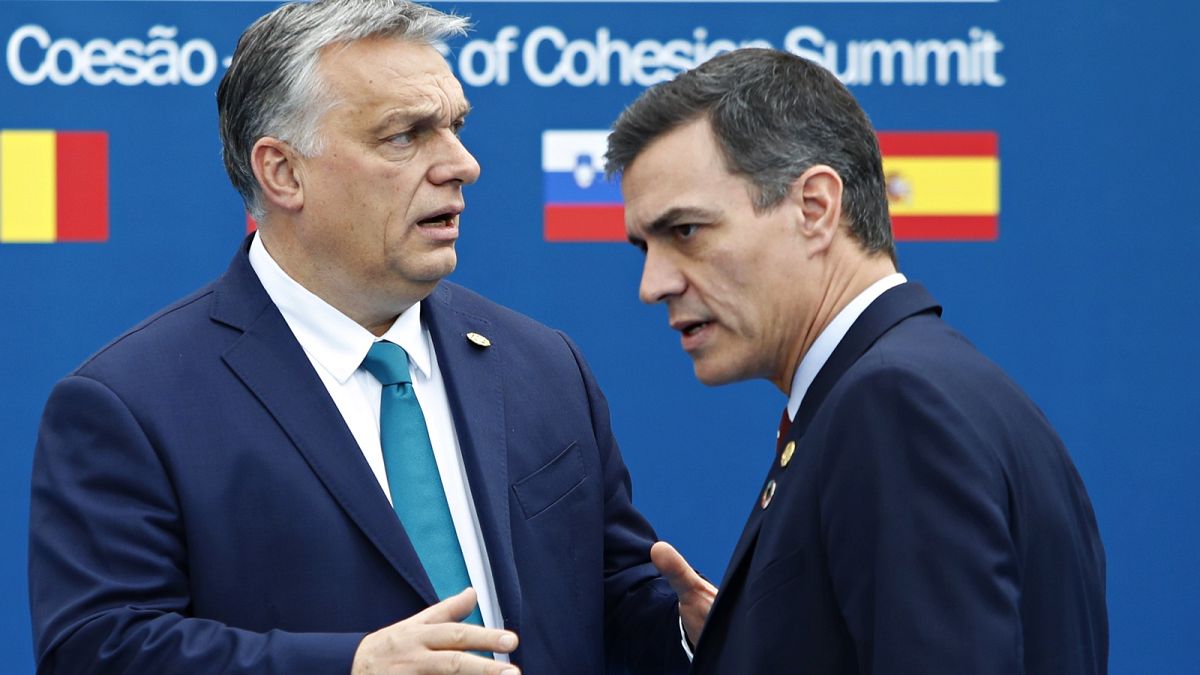The European Commission has raised no objections to Spain’s decision to veto Hungary’s attempt to acquire Talgo, a prominent domestic train manufacturer.
The Spanish government’s recent veto of the Hungarian bid for Talgo, valued at €619 million, has received tacit support from the European Commission. This decision carries significant geopolitical implications, fueling debates throughout Europe.
During a press briefing, a Commission spokesperson stated, “The prerogative for such decisions lies with member states,” in reference to the terminated acquisition. Moreover, they explained, “In accordance with EU treaties, member states can limit certain market freedoms, including the freedom of establishment and capital movement, based on public security considerations. Such measures must be both justified and proportionate to their intended objectives.”
The spokesperson emphasized that any disputes resulting from this matter are ultimately subject to resolution by the European Court of Justice in Luxembourg, rather than by the Commission itself.
Spain’s decision reflects serious concerns over national security and public order, as highlighted in a statement issued on Tuesday. The government described Talgo as a “strategic company in a key sector for economic security, territorial cohesion, and industrial development in Spain.”
Reports have emerged from the Spanish newspaper El País, revealing that Spanish intelligence raised alarms regarding the Hungarian consortium’s connections with the government of Prime Minister Viktor Orbán and Transmashholding, Russia’s leading train manufacturer. It was noted that 45% of the consortium is owned by Corvinus International Investment, a state-run investment fund, while the remaining 55% is associated with Magyar Vagon, a company that reportedly has informal ties to Transmashholding.
Furthermore, Andras Tambor, a top executive within the consortium, is said to have a close relationship with Orbán, reflecting the Hungarian government’s increasing influence over private enterprises.
Concerns over the potential transfer of Talgo’s proprietary technology, which facilitates the changing of track gauges, have also escalated.
Geopolitical Implications
In reaction to the veto, Ganz MagVag announced intentions to seek legal remedies and escalate the issue to Brussels, heightening the bilateral tensions on a broader European stage. However, the European Commission stated they had not been approached by any parties before or after the announcement of the veto.
The Commission highlighted that prior approval of Spain’s veto was unnecessary, indicating that such moves by member states are rare given the high level of trust in intra-EU business transactions.
Spain’s decision marks a notable exception in EU practice, especially as the bloc has recently fortified its legal framework to scrutinize foreign investments, primarily targeting non-EU stakeholders from countries like China aiming to acquire critical domestic firms.
Amid ongoing tensions, concerns arise regarding the future of the single market, particularly as Hungary pursues closer ties with Russia, underscoring their defiance of Western sanctions. For example, Orbán’s recent visit to Moscow for talks with Vladimir Putin elicited significant backlash and prompted a boycott of Hungary’s six-month presidency of the Council of the EU, which will extend until December 31.
Moreover, escalating tensions relate to Hungary’s decision to ease visa requirements for Russian and Belarusian workers, with Brussels cautioning that these changes may facilitate entry for potential Russian spies into the Schengen Area, heightening security concerns for the passport-free zone.
Photo credit & article inspired by: Euronews



